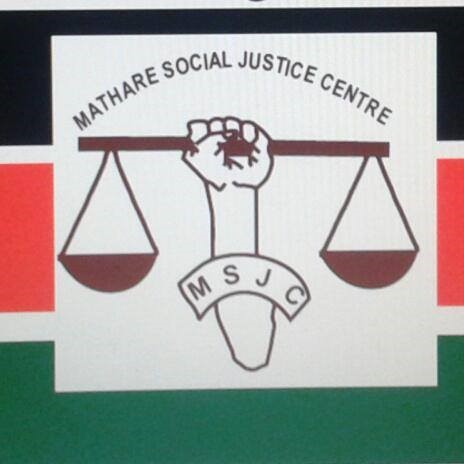BGHS.NEWS
Reports about Practical Projects #6
:: Non-academic careers::
Reports about Practical Projects #6
“Reports about Practical Projects” are written by doctoral researchers who have designed and carried out a practical project in cooperation with a non-university organization. The BGHS has been supporting these projects with scholarships since 2020. In the sixth part of the series, Sinmi Akin-Aina reports on her practical project with the Mathare Social Justice Centre.
Mathare is one of the oldest and largest informal settlements in Nairobi, Kenya, with a population of 500,000 people. Mathare is replete with history and has been the staging ground for multiple struggles for democracy, social justice, and human rights. The Mathare Social Justice Centre was an initiative begun by young community members in Mathare in 2014 to promote social justice and to combat the extrajudicial police killings of young men in the community. Mathare is a site where daily forms of physical and structural violence have historically been allowed to occur with impunity, and with little hope for redress and justice for those in the community. Some of these forms of violence include forced evictions, land grabbling, police abuse of power and extrajudicial killings, political violence, and other forms of economic, social and psychological marginalization. In light of these abuses, a group of young activists from the community set out to create a centre focussed on the promotion of various forms of participatory justice. This led to the creation of their foundational campaign Extrajudicial Killings and Police Abuse of Power, which documents extrajudicial killings and state-sponsored violence. The 2017 Participatory Action Report: Who is Next? A Participatory Action Report Against the Normalization of Extrajudicial Killings in Mathare was released three years after the creation of the centre, and is one of the first of its kind, detailing the human rights violations by the state in the informal settlement of Nairobi, participatory action research compiled, lead and written by community-based researchers.

Image 1: The emblem of the Mathare Social Justice Centre
As such, in the framework of the practical project for doctoral studies at the BGHS, the aim of this initiative was to leverage skills in research, policy, or monitoring or evaluation for social change, particularly in collaboration with grassroots and community-based organizations in the Global South. Thus, I proposed a project to conduct a Program Evaluation on the Mathare Social Justice Centre’s foundational campaign on Extrajudicial Killings and Police Abuse of Power.
Much of the international development literature speaks to an existing capacity gap, between the work that is done by grassroots organizations, and the work and time commitment required for the reporting and donor accountability in said programs. Grassroots and community organizations may have fewer material resources, less opportunities/time for training, and have little time to engage in projects that are not the primary mission of the organization—as with much of the work required in monitoring and evaluation. Thus, my project aimed to bridge this gap, when possible, for grassroots organizations engaged in critical social change and transformation.
Information for the evaluation was collected primarily through interviews, a focus group and document analysis. This included three interviews with: community members (1), program staff (1) and a board member/founder of the organization (1). The focus groups included six participants including: community human rights monitors, community mobilizers as well as program staff. Interviews and the focus group lasted from thirty to 90 minutes.
The key strengths of the Extra Judicial Executions campaign lie in its savvy capacity for dynamic movement building and mobilizing, as well as it’s keen use of adaptable and interconnected programming responsive to the needs of the community. Despite this, certain challenges of a structural nature remain, however these are implicit to the Kenyan justice and policing system, and a culture that allows for the killing of poor, mostly male youth with impunity.
Click here for the Mathare Social Justice Centre.
Further information about the Non-University Careers Project can be found on the BGHS website.